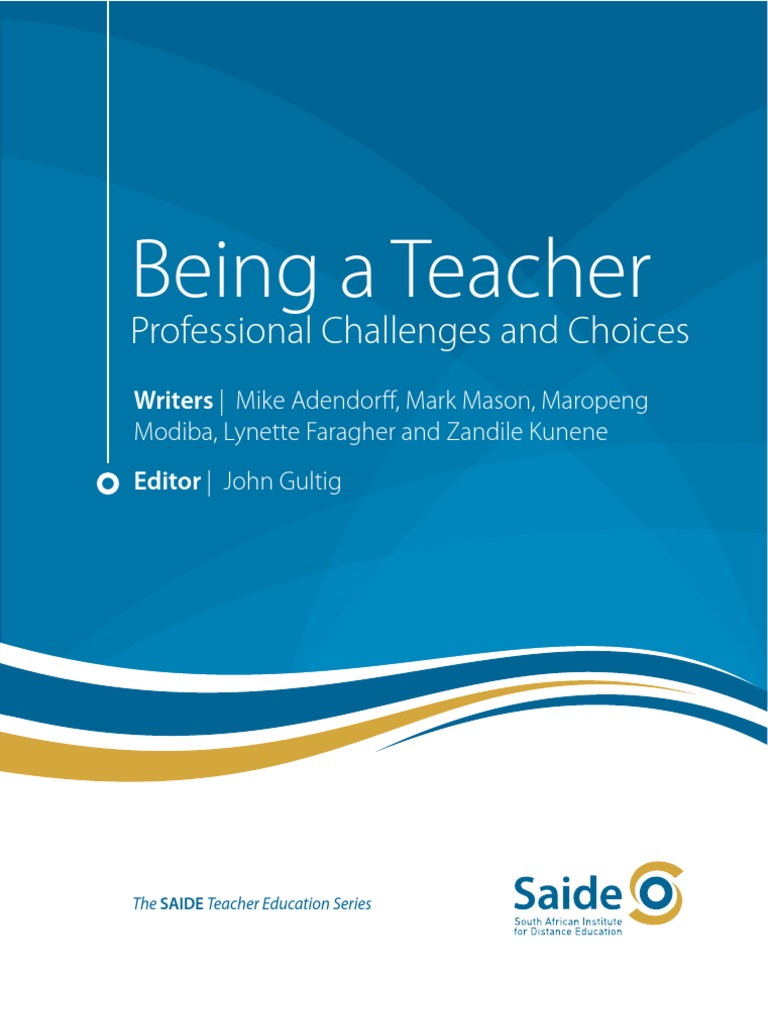In the labyrinthine journey of life, the quest for knowledge is a paramount endeavor, one that beckons individuals to seek mentors and teachers who can illuminate the path. Within the Baha’i teachings, the principles guiding the selection of such educators are distinctly rooted in spiritual and ethical considerations. Trust becomes the cornerstone upon which the edifice of learning is built, and the Baha’i perspective provides an intricate framework through which one can discern the veracity of a teacher’s guidance.
At the heart of the Baha’i faith lies the principle of unity, not merely among humanity, but also within the realm of knowledge. Thus, a Baha’i seeking guidance must first engage in introspection, akin to the process of polishing a precious gem, allowing inner wisdom to shine clearly. This self-examination fosters the ability to discern trustworthy guidance, reflecting both personal resonance and spiritual resonance with the teachings advocated by one’s potential mentor.
The multifaceted nature of trust is essential to understand in this context. Trust is not an empty vessel; it is a living entity, nurtured through actions, words, and the capacity to embody principles. Baha’is are encouraged to evaluate a teacher’s sincerity—a surging tide of authenticity that can be felt through an authentic narrative. A mentor’s life experiences and their alignment with Baha’i core principles, such as truthfulness, humility, and service, provide invaluable insights. Just as a lighthouse steadfastly guides ships through turbulent waters, so too must a trusted teacher lead by example.
In assessing the credibility of potential educators, the Baha’i teachings illuminate several key facets. First and foremost, personal exemplification stands as a hallmark of effective teaching. A teacher who imbibes the teachings they espouse creates a palpable atmosphere of trust. Their actions must harmonize with their words, establishing a congruence that fosters confidence among students. This integrity builds a bridge, enabling learners to traverse the chasm that often exists between theory and practice.
Secondly, the indefatigable quest for knowledge merges seamlessly with the Baha’i ideal of collective advancement. An educator’s commitment to ongoing learning serves as a barometer for their capacity to inspire others. The Baha’i faith places immense value on the pursuit of knowledge as a lifelong endeavor, urging individuals to perpetuate their growth in understanding. Teachers who exhibit this ardor not only enrich their own lives but spark a desire for intellectual and spiritual growth in their students. Much like the gentle sun that beckons flowers to bloom, so too does a passionate educator illuminate the garden of learning.
Furthermore, community involvement plays a significant role in verifying a potential teacher’s integrity and dedication. Baha’is are urged to participate actively in their communities, assisting in the collective progression of society. A prospective teacher’s engagement demonstrates a commitment to service and unity, embodying the ethos of the Baha’i community. This involvement nurtures bonds of trust and can serve as a powerful testament to their character and philosophies. As vines intertwine in a flourishing garden, so too must educators weave themselves into the fabric of the community.
Another pivotal criterion is the adherence to universal principles cherished within the Baha’i faith. Core values such as equality, justice, and compassion must resonate within the teachings imparted by a mentor. The veracity of a teacher’s insights can often be assessed through their alignment with these transcendent ideals, which serve as a universal compass for ethical behavior. Much like the stars guiding nocturnal travelers, these principles provide direction in the often murky waters of moral judgment.
Moreover, the Baha’i teachings emphasize the importance of the spiritual familial bond between teacher and student. This relationship must transcend mere transactional interactions, fostering a nurturing environment rooted in mutual respect and love. A transformational educator recognizes that each student possesses unique potentials, inviting them into a collaborative partnership. The teacher’s role is akin to a gardener, tending to the seedlings of knowledge, nurturing their growth, and allowing each to flourish in its own time and manner.
Finally, engaging in dialogue and inquiry emerges as an indispensable thread woven throughout the tapestry of trust and education. The process of learning within the Baha’i framework is not a monologue, but rather a dynamic exchange, fostering an atmosphere where questions are valued, and curiosity is nourished. A trustworthy teacher encourages discourse, prompting their students to explore the depths of the teachings, thus emboldening them to think critically and develop their own understanding. In the process, the teacher not only imparts knowledge but also instills confidence—a precious gift that encourages lifelong exploration.
In conclusion, the journey of identifying a teacher within the Baha’i framework is one that necessitates careful reflection, discernment, and active engagement. The principles of trust, integrity, and community intertwine, weaving a rich tapestry of relationships that ultimately enrich the educational experience. A Baha’i seeking a mentor should hold these ideals close, allowing them to guide the choice of whom to trust. Just as each star contributes to the brilliance of the night sky, each teacher brings their unique light to the collective journey toward knowledge and spiritual enlightenment. In this sacred endeavor, the principles set forth by the Baha’i teachings not only guide seekers in their choices but also cultivate profound relationships that transcend the ordinary, illuminating the path to truth and understanding.
